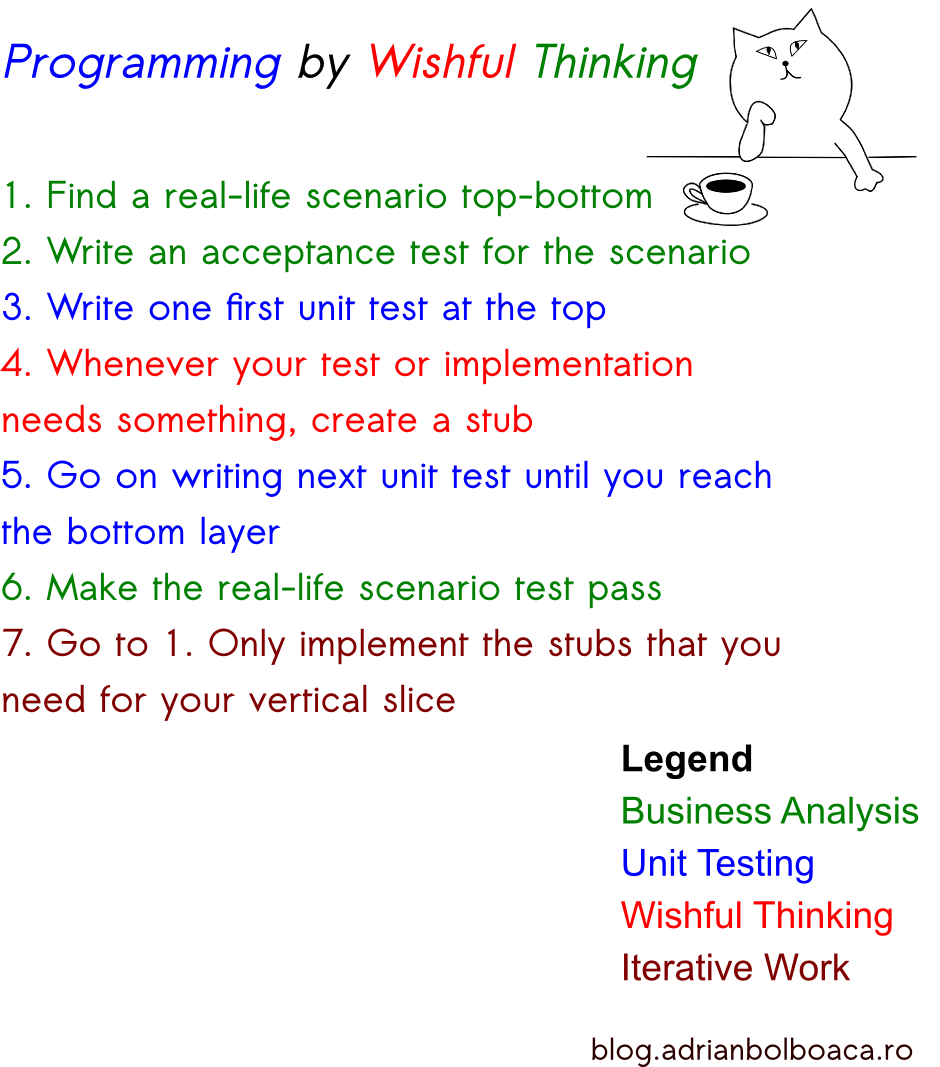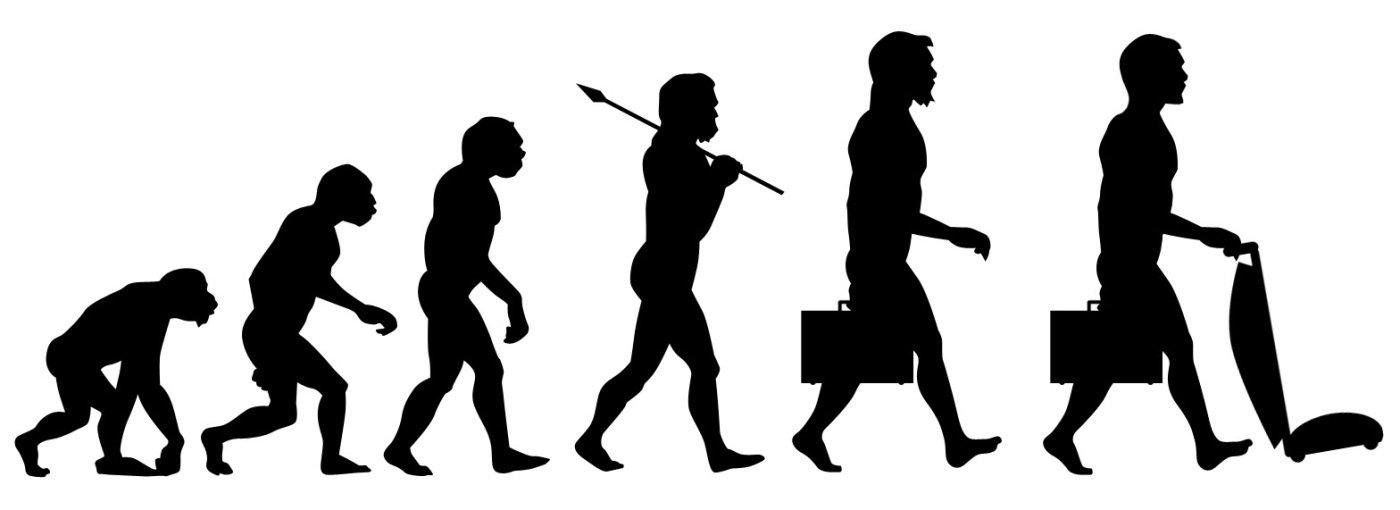Real world Evolutionary Design


That's me!


Agenda
- Warming up
- Let's get to know each other
- Setup
- Iteration 1: Micro design
- Implementing a requirement
- Retrospective
- Iteration 2: Macro design
- Refactoring
- Retrospective
- Evolutionary design?
(10 min)
(10 min)
(20 min)
(30 min)
(10 min)
(30 min)
(10 min)
What do you expect?
You will be happy if ...

2 minutes
Objectives
- Introducing evolutionary design
- Having fun coding together
Playtime

The use case
https://github.com/jcraftsman/evolutionary-design-workshop
Find documents, fast!
Our agents have a high risk job.
They provide us with pictures of the documents we need.
Finding a document by searching for a text it contains is huge amount
of work.


Plug into the existing system
In the intelligence center,
we already have a search engine.
What we need is a tool that analyses the pictures of the documents and notifies the search engine.

The "rules"


But hey...
What is Evolutionary Design?
Let's start by
what it is not!
BIG Upfront Design
- Endless discussions
- Focus on the solution
- Solving the wrong problem
- Speculative development (YAGNI)
- A lot of frustration

public class AbstractCommonManagerImpl extends AbstractCommonManager {No Design

No Design

- It is messy but it is working (Why fix it if it is not broken!?)
- We will clean it later (later = never)
- The mess slows you down
We should take time to go fast (or to just keep moving)
How did we get here?
Gotta get out of this

Evolutionary Design
Software is alive
How to make it evolve in a natural way

Evolutionary Design
- Not a one shot decision
- Continuous and emerging
- Early and often
There will be refactoring!

SIMPLICITY
A delicate balance
SIMPLICITY
FLEXIBILITY
A delicate balance
YAGNI
FLEXIBILITY
Don't think you know!
All non-trivial abstractions, to some degree, are leaky. (*)
- Identify the axis of changes
- Then implement the abstractions that will protect you from these changes (e.g. Domain vs Infrastructure)
Abstraction vs Details

(*)The law of leaky abstractions by Joel Spolsky
A delicate balance
DRY
FLEXIBILITY
Don't think you know!
Removing accidental duplication may lead to accidental complexity and break flexibility
Beware of accidental duplication

Don't think you know!
- Incorporate feedback!
- We all have our design bias (OO, FP, CQRS, Microservice, Event, non functional, hexagonal...)
- We are heavily biased towards the vocabulary we are comfortable with
Focus on the problem not the solution

Deductive vs Inductive
General principles
Specific instances
Deductive
Inductive
Deductive vs Inductive
EXPERIENCE
Specific instances
Deductive
Inductive
Deductive vs Inductive
Theory
Confirmation
Deductive
Inductive
Hypothesis
Observation
Observation
Theory
Pattern
Hypothesis


What do you think about deductive approach?

10 minutes
Good for ...
Disadvantages
Not suitable for ...
Advantages
Deductive
Evolutionary Design
- Breakdown of a logic into its parts
- Decomposing complexity
- Deducing abstractions inside a bounded context
- Focus on the interactions
- Collaboration behaviour is important not implementation
- Nothing comes outside the box

Inductive
Evolutionary Design
- Start from small details
- Generalize non accidental duplication
- Evolve small behavior into design concepts
- Generalize design concepts
- Evolve design concepts into components

source: http://blog.adrianbolboaca.ro
Inductive
Evolutionary Design
- Scalar => Primitive type (string, int, array)
- Primitive type => Field or parameter
- Field => Settings class
- Parameter => Data structure
- Logic => Pure function
- Pure function => Class function
- Class => Component
Example of incremental design decisions:
source: http://blog.adrianbolboaca.ro
Inductive
Evolutionary Design
- Risk mitigation
- Early validation of requirements
- Behavior is important not implementation
- Focus more on state behavior than the collaboration
- Most Valuable things first

Inductive and Deductive
Evolutionary Design
You don't have to choose
You can use them both

What about architecture
Architecture is a term that lots of people
try to define...
There are two common elements:1 - The highest-level breakdown of a system
into its parts2 - Decisions that are hard to change ...

Decisions that developers wish they could get right early...
The subjectivity comes in here as well because, if you find something that is easier to change than you once thought, then it's no longer architectural ...
Source: Patterns of Enterprise Application Architectue by Martin Fowler
Take away
Forget about the big upfront design, but don't forget to think about design

Evolutionary design is about the decisions that emerge from a living code in order to evolve it and keep mastering its complexity